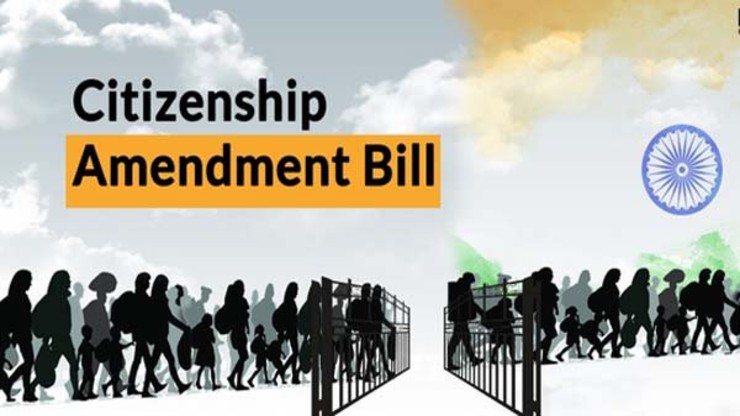
NEW DELHI: The Government has secured the Union Cabinet’s approval for tabling the controversial Citizenship Amendment Bill. The Bill seeks to grant Indian citizenship to non-Muslim refugees from Pakistan, Bangladesh and Afghanistan who were facing religious persecution in these countries.
The Bill has within its ambit refugees who are Hindus, Sikhs, Buddhists, Jains, Parsis and Christians from Afghanistan, Bangladesh and Pakistan.
Anyone belonging to the above-mentioned six religions and three countries can apply for citizenship after residing in India for the stipulated six years.
The Bill to amend the Citizenship Act of 1955 is on the government’s agenda for the past two years but was stuck because of the strong protests from the Opposition.
Determined to get it passed in the winter session of Parliament, the ruling BJP has issued a whip to its MPs to be present in both the Houses next week when the Bill is put to vote.
The Opposition parties described the Bill as unconstitutional as it violates the preamble and its secular ethos.
Congress MP Shashi Tharoor told reporters in Parliament House that those who believe that religion should determine nationhood are borrowing an idea that is responsible for creation of Pakistan.
Another Congress leader said the Bill marks the beginning of the Modi government’s bid to convert secular India into a “Hindu rashtra.”
“We have always argued that our idea of nation was what Mahatma Gandhi, Nehruji, Maulana Azad and Dr Ambedkar had conceived, that religion cannot determine nationhood,” Tharoor said.
He argued that India is a country for everybody, irrespective of religion. People have equal rights in this country and the Constitution reflects that. “Today, this bill undermines this fundamental tenet of the Constitution,” he added.
Five other Bills, besides the Citizenship Amendment Bill, were also approved by the Union Cabinet which the government wants to push in Parliament before its winter session ends.
The Bill was introduced earlier, too; however, it lapsed as the previous Lok Sabha ended its term without getting it passed by the Rajya Sabha. The legislation cleared by the Cabinet on Wednesday is a replica of the one approved by the JPC and passed by the Lok Sabha in January.
Parliament is likely to witness a high-voltage showdown between the government and the opposition in the lower house. The Shiv Sena on Wednesday assured the Congress leaders that its MPs will oppose the Bill in Parliament.
Defence Minister Rajnath Singh said the Opposition’s fears are unfounded as it should accept the fact that the three neighbouring countries are all Islamic nations and it is the non-Muslims who are at the receiving end of religious persecution there.
Besides the Congress, the Trinamool Congress and the CPI(M), a few other parties have been steadfastly opposing the bill, claiming that citizenship can’t be given on the basis of religion.
A large section of people and organisations in the northeast have also opposed the bill, saying it will nullify the provisions of the Assam Accord of 1985, which fixed March 24, 1971, as the cut-off date for deportation of all illegal immigrants irrespective of religion.
“It is simple. Citizenship cannot be determined by or linked to religion. This is what makes the Citizenship Amendment Bill unacceptable and unconstitutional. The CAB is aimed at destroying the basis of India.”













